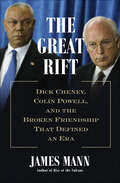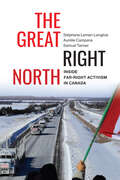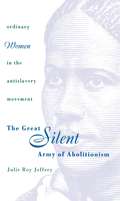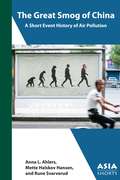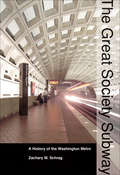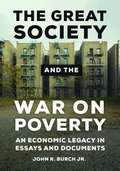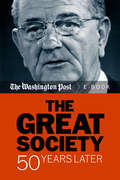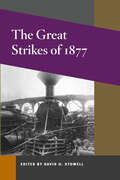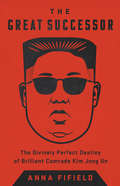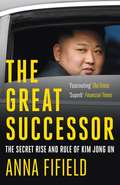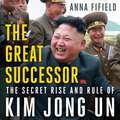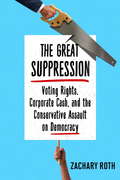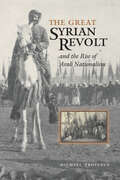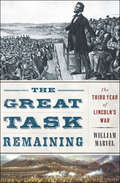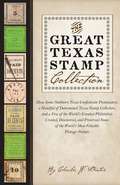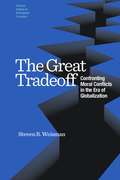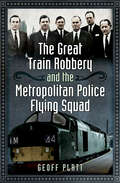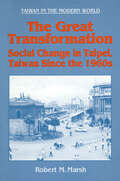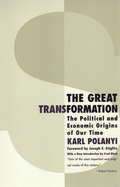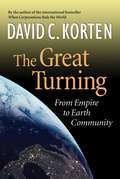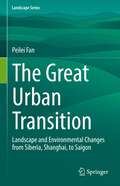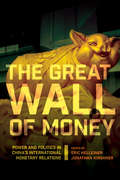- Table View
- List View
The Great Rift: Dick Cheney, Colin Powell, and the Broken Friendship That Defined an Era
by James MannThe Great Rift is a sweeping history of the intertwined careers of Dick Cheney and Colin Powell, whose rivalry and conflicting views of U.S. national security color our political debate to this day.Dick Cheney and Colin Powell emerged on the national scene more than thirty years ago, and it is easy to forget that they were once allies. The two men collaborated closely in the successful American wars in Panama and Iraq during the presidency of George H. W. Bush--but from this pinnacle, conflicts of ideology and sensibility drove them apart. Returning to government service under George W. Bush in 2001, they (and their respective allies within the administration) fell into ever-deepening antagonism over the role America should play in a world marked by terrorism and other nontraditional threats. In a wide-ranging, deeply researched, and dramatic narrative, James Mann explores each man’s biography and philosophical predispositions to show how and why this deep and permanent rupture occurred. Through dozens of original interviews and surprising revelations from presidential archives, he brings to life the very human story of how this influential friendship turned so sour and how the enmity of these two powerful men colored the way America acts in the world.
The Great Right North: Inside Far-Right Activism in Canada (Carleton Library Series #267)
by Stéphane Leman-Langlois Samuel Tanner Aurélie CampanaIn February 2021 the Canadian government published a considerably expanded list of domestic terrorist entities. While some, such as Blood and Honour, were already known, others – such as Atomwaffen Division, the Base, the Proud Boys, and the Russian Imperial Movement – emerged from the shadows. Until then many considered far-right groups in Canada a negligible phenomenon, at worst a local police matter.The Great Right North charts the growth of these groups, illuminating how official and unofficial government attention generates the context in which they build their movements. The result of seven years of research – including social media scraping, analysis of print and video sources, and interviews with scores of leaders and adherents – it examines how far-right organizations operate, recruit, and finance their activities and explores why individuals choose to join. Breaking new ground by revealing the ideological underpinnings and fragmentation within these groups, the authors also highlight the role of digital platforms in their proliferation.Most politicians have been quiet about the phenomenon of far-right extremism in Canada, insisting it is imported activism financed elsewhere. The Great Right North provides an essential primer – for journalists, those working in policy institutes and think tanks, and students and scholars – for understanding its vast and urgent homegrown challenges.
The Great Silent Army of Abolitionism
by Julie Roy JeffreyBy focusing on male leaders of the abolitionist movement, historians have often overlooked the great grassroots army of women who also fought to eliminate slavery. Here, Julie Roy Jeffrey explores the involvement of ordinary women--black and white--in the most significant reform movement prior to the Civil War. She offers a complex and compelling portrait of antebellum women's activism, tracing its changing contours over time. For more than three decades, women raised money, carried petitions, created propaganda, sponsored lecture series, circulated newspapers, supported third-party movements, became public lecturers, and assisted fugitive slaves. Indeed, Jeffrey says, theirs was the day-to-day work that helped to keep abolitionism alive. Drawing from letters, diaries, and institutional records, she uses the words of ordinary women to illuminate the meaning of abolitionism in their lives, the rewards and challenges that their commitment provided, and the anguished personal and public steps that abolitionism sometimes demanded they take. Whatever their position on women's rights, argues Jeffrey, their abolitionist activism was a radical step--one that challenged the political and social status quo as well as conventional gender norms.
The Great Smog of China: A Short Event History of Air Pollution (Asia Shorts)
by Anna L. Ahlers Mette Halskov Hansen Rune SvarverudThe Great Smog of China traces Chinese air pollution events dating back to more than 2,000 years ago. Based on the authors’ fieldwork, interviews and text studies, the book offers a short and concise history of selected air pollution incidents that for varying reasons prompted different kinds of responses and forms of engagement in Chinese society. The three authors, from the disciplines of anthropology, China studies and political science, identify traceable incidents of smog and air pollution that have been communicated in different media and came to impact society in various ways. This also informs a discussion of what it takes to transform people’s experiences of health and environmentally related risks of pollution into broader forms of socio-political agency.
The Great Society Subway: A History of the Washington Metro (Creating the North American Landscape)
by Zachary M. SchragAs Metro stretches to Tysons Corner and beyond, this paperback edition features a new preface from the author.Drivers in the nation's capital face a host of hazards: high-speed traffic circles, presidential motorcades, jaywalking tourists, and bewildering signs that send unsuspecting motorists from the Lincoln Memorial into suburban Virginia in less than two minutes. And parking? Don't bet on it unless you're in the fast lane of the Capital Beltway during rush hour.Little wonder, then, that so many residents and visitors rely on the Washington Metro, the 106-mile rapid transit system that serves the District of Columbia and its inner suburbs. In the first comprehensive history of the Metro, Zachary M. Schrag tells the story of the Great Society Subway from its earliest rumblings to the present day, from Arlington to College Park, Eisenhower to Marion Barry. Unlike the pre–World War II rail systems of New York, Chicago, and Philadelphia, the Metro was built at a time when most American families already owned cars, and when most American cities had dedicated themselves to freeways, not subways. Why did the nation's capital take a different path? What were the consequences of that decision?Using extensive archival research as well as oral history, Schrag argues that the Metro can be understood only in the political context from which it was born: the Great Society liberalism of the Kennedy, Johnson, and Nixon administrations. The Metro emerged from a period when Americans believed in public investments suited to the grandeur and dignity of the world's richest nation. The Metro was built not merely to move commuters, but in the words of Lyndon Johnson, to create "a place where the city of man serves not only the needs of the body and the demands of commerce but the desire for beauty and the hunger for community."Schrag scrutinizes the project from its earliest days, including general planning, routes, station architecture, funding decisions, land-use impacts, and the behavior of Metro riders. The story of the Great Society Subway sheds light on the development of metropolitan Washington, postwar urban policy, and the promises and limits of rail transit in American cities.
The Great Society and the War on Poverty: An Economic Legacy in Essays and Documents
by John R. BurchAn ideal resource for students as well as general readers, this book comprehensively examines the Great Society era and identifies the effects of its legacy to the present day. <P><P> With the assassination of President John F. Kennedy, Lyndon B. Johnson inherited from the Kennedy administration many of the pieces of what became the War on Poverty. In stark contrast to today, Johnson was aided by a U.S. Congress that was among the most productive in the history of the United States. Despite the accomplishments of the Great Society programs, they failed to accomplish their ultimate goal of eradicating poverty. Consequently, some 50 years after the Great Society and the War on Poverty, many of the issues that Johnson's administration and Congress dealt with then are in front of legislators today, such as an increase in the minimum wage and the growing divide between the wealthy and the poor. <P><P> This reference book provides a historical perspective on the issues of today by looking to the Great Society period; identifies how the War on Poverty continues to impact the United States, both positively and negatively; and examines how the Nixon and Reagan administrations served to dismantle Johnson's achievements. This single-volume work also presents primary documents that enable readers to examine key historical sources directly. Included among these documents are The Council of Economic Advisers Economic Report of 1964; the Civil Rights Act of 1964; John F. Kennedy's Remarks Upon Signing the Economic Opportunity Act; The Negro Family: The Case for National Action (a.k.a. the Moynihan Report); and the Report of the National Advisory Commission on Civil Disorders (a.k.a. the Kerner Report). <P><P> * Documents the evolution of key issues addressed in the Great Society--such as civil rights, immigration, and the chasm between rich and poor--that are still challenging us today <P><P> * Shows how young people were able to influence massive political and social change--in a time without the benefit of instant communication and social media <P><P> * Includes dozens of primary documents, including Lyndon B. Johnson's 1964 State of the Union Address; the Civil Rights Act of 1964; Lyndon B. Johnson's "Stepping Up the War on Poverty" address; "Where Do We Go From Here?," delivered by Martin Luther King Jr. at the SCLC Convention Atlanta, GA; and remarks given by President Obama at the Civil Rights Summit at the LBJ Presidential Library in April 2014 <P><P> * Includes content related to the themes of the National Curriculum Standards for Social Studies and the Common Core requirements for primary documents and critical thinking exercises
The Great Society: 50 Years Later
by The Washington PostA stirring profile of our 36th president, Lyndon B. Johnson, who presided over one of the most tumultuous eras in our country’s history. Lyndon B. Johnson’s unprecedented and ambitious domestic vision in the 1960s changed the nation. It unraveled and restitched the very fabric of the American life. It knocked down racial barriers, provided health care for the elderly and food for the poor, sustained orchestras and museums in cities across the country, and put seat belts and padded dashboards in every automobile. But it also carved the deep philosophical divide that has come to define the nation’s harsh politics. Half a century later, the policies of Lyndon B. Johnson continue to define politics and power in America. The Great Society: 50 Years Later is a series from the Washington Post that examines the legacy—and limits—of Johnson’s deeply humanistic, and profoundly revolutionary social agenda.
The Great Strikes of 1877 (Working Class in American History)
by Michael Kazin David Miller Joshua Brown Shelton Stromquist Richard Schneirov David O. Stowell Steven J HoffmanA spectacular example of collective protest, the Great Strike of 1877--actually a sequence of related actions--was America's first national strike and the first major strike against the railroad industry. In some places, non-railroad workers also abandoned city businesses, creating one of the nation's first general strikes. Mobilizing hundreds of thousands of workers, the Great Strikes of 1877 transformed the nation's political landscape, shifting the primary political focus from Reconstruction to labor, capital, and the changing role of the state. Probing essays by distinguished historians explore the social, political, regional, and ethnic landscape of the Great Strikes of 1877: long-term effects on state militias and national guard units; ethnic and class characterization of strikers; pictorial representations of poor laborers in the press; organizational strategies employed by railroad workers; participation by blacks; violence against Chinese immigrants; and the developing tension between capitalism and racial equality in the United States. Contributors: Joshua Brown, Steven J. Hoffman, Michael Kazin, David Miller, Richard Schneirov, David O. Stowell, and Shelton Stromquist.
The Great Successor: The Divinely Perfect Destiny of Brilliant Comrade Kim Jong Un
by Anna FifieldThe behind-the-scenes story of the rise and reign of the world's strangest and most elusive tyrant, Kim Jong Un, by the journalist with the best connections and insights into the bizarrely dangerous world of North Korea.Since his birth in 1984, Kim Jong Un has been swaddled in myth and propaganda, from the plainly silly--he could supposedly drive a car at the age of three--to the grimly bloody stories of family members who perished at his command.Anna Fifield reconstructs Kim's past and present with exclusive access to sources near him and brings her unique understanding to explain the dynastic mission of the Kim family in North Korea. The archaic notion of despotic family rule matches the almost medieval hardship the country has suffered under the Kims. Few people thought that a young, untested, unhealthy, Swiss-educated basketball fanatic could hold together a country that should have fallen apart years ago. But Kim Jong Un has not just survived, he has thrived, abetted by the approval of Donald Trump and diplomacy's weirdest bromance.Skeptical yet insightful, Fifield creates a captivating portrait of the oddest and most secretive political regime in the world--one that is isolated yet internationally relevant, bankrupt yet in possession of nuclear weapons--and its ruler, the self-proclaimed Beloved and Respected Leader, Kim Jong Un.
The Great Successor: The Secret Rise and Rule of Kim Jong Un
by Anna FifieldThe Great Successor is an irreverent yet insightful quest to understand the life of Kim Jong Un, one of the world's most secretive dictators. Kim's life is swathed in myth and propaganda, from the plainly silly--he supposedly ate so much Swiss cheese that his ankles gave way--to the grimly bloody stories of the ways his enemies and rival family members have perished at his command.One of the most knowledgeable journalists on modern Korea, Anna Fifield has exclusive access to Kim's aunt and uncle who posed as his parents while he was growing up in Switzerland, members of the entourage that accompanied Dennis Rodman on his quasi-ambassadorial visits with Kim, and the Japanese sushi chef whom Kim befriended and who was the first outsider to identify him as the inevitable successor to his father as supreme ruler. She has been able to create a captivating portrait of the oddest and most isolated political regime in the world, one that is broken yet able to summon a US president for peace talks, bankrupt yet in possession of nuclear weapons. Kim Jong Un; ridiculous but deadly, and a man of our times.
The Great Successor: The Secret Rise and Rule of Kim Jong Un
by Anna FifieldThe behind-the-scenes story of the rise and reign of the world's strangest and most elusive tyrant, Kim Jong Un, by the journalist with the best connections and insights into the bizarrely dangerous world of North Korea.The Great Successor is an irreverent yet insightful quest to understand the life of Kim Jong Un, one of the world's most secretive dictators. Kim's life is swathed in myth and propaganda, from the plainly silly--he supposedly ate so much Swiss cheese that his ankles gave way--to the grimly bloody stories of the ways his enemies and rival family members have perished at his command.One of the most knowledgeable journalists on modern Korea, Anna Fifield has exclusive access to Kim's aunt and uncle who posed as his parents while he was growing up in Switzerland, members of the entourage that accompanied Dennis Rodman on his quasi-ambassadorial visits with Kim, and the Japanese sushi chef whom Kim befriended and who was the first outsider to identify him as the inevitable successor to his father as supreme ruler. She has been able to create a captivating portrait of the oddest and most isolated political regime in the world, one that is broken yet able to summon a US president for peace talks, bankrupt yet in possession of nuclear weapons. Kim Jong Un; ridiculous but deadly, and a man of our times.(P) 2019 Hachette Audio
The Great Suppression: Voting Rights, Corporate Cash, and the Conservative Assault on Democracy
by Zachary RothA deeply reported look inside the new conservative movement working to undermine American democracy. Control of the country is up for grabs--and Republicans have been rigging the game in their favor. Twenty-two states have passed restrictions on voting. Ruthless gerrymandering has given the GOP a long-term grip on Congress. Meanwhile, the Supreme Court has eviscerated campaign finance laws, boosting candidates backed by big money. It would be worrying enough if these were just schemes for partisan advantage. But the reality is even more disturbing. As reporter Zachary Roth reveals, a growing number of Republicans distrust the very idea of democracy--and they're doing everything they can to limit it. In The Great Suppression, Roth unearths the deep historical roots of this anti-egalitarian worldview, and introduces us to its modern-day proponents: The GOP officials pushing to make it harder to cast a ballot; the lawyers looking to scrap all limits on money in politics; the libertarian scholars reclaiming judicial activism to roll back the New Deal; and the corporate lobbyists working to ban local action on everything from the minimum wage to the environment. And he travels from Rust Belt cities to southern towns to show us how these efforts are hurting the most vulnerable Americans and preventing progress on pressing issues.A sharp, searing polemic in the tradition of Rachel Maddow and Matt Taibbi, The Great Suppression is an urgent wake-up call about a threat to our most cherished values, and a rousing argument for why we need democracy now more than ever.From the Hardcover edition.
The Great Syrian Revolt and the Rise of Arab Nationalism (CMES Modern Middle East Series)
by Michael ProvenceA historical study of the 1925 revolt against French rule in Syria, and how it established a new popular nationalism that helped shape the Middle East.The Great Syrian Revolt of 1925 was the first mass movement against colonial rule in the Middle East. Mobilizing peasants, workers, and army veterans, it was also the region&’s largest and longest-lasting anti-colonial insurgency during the inter-war period. Though the revolt failed to liberate Syria from French occupation, it provided a model of popular nationalism and resistance that remains potent in the Middle East today. Each subsequent Arab uprising against foreign rule has repeated the language and tactics of the Great Syrian Revolt. In this work, Michael Provence uses newly released secret colonial intelligence sources, neglected memoirs, and popular memory to tell the story of the revolt from the perspective of its participants. He shows how Ottoman-subsidized military education created a generation of leaders who rebelled against both the French Mandate rulers of Syria and the Syrian elite who helped the colonial regime. This new popular nationalism was unprecedented in the Arab world. Provence shows compellingly that the Great Syrian Revolt was a formative event in shaping the modern Middle East.
The Great Syrian Revolt and the Rise of Arab Nationalism (CMES Modern Middle East Series)
by Michael ProvenceThe Great Syrian Revolt of 1925 was the largest and longest-lasting anti-colonial insurgency in the inter-war Arab East. Mobilizing peasants, workers, and army veterans, rather than urban elites and nationalist intellectuals, it was the first mass movement against colonial rule in the Middle East. The revolt failed to liberate Syria from French occupation, but it provided a model of popular nationalism and resistance that remains potent in the Middle East today. Each subsequent Arab uprising against foreign rule has repeated the language and tactics of the Great Syrian Revolt.<P><P>In this work, Michael Provence uses newly released secret colonial intelligence sources, neglected memoirs, and popular memory to tell the story of the revolt from the perspective of its participants. He shows how Ottoman-subsidized military education created a generation of leaders of modest background who came to rebel against both the French Mandate rulers of Syria and the Syrian intellectuals and landowners who helped the colonial regime to function. This new popular nationalism was unprecedented in the Arab world. Provence shows compellingly that the Great Syrian Revolt was a formative event in shaping the modern Middle East.
The Great Task Remaining: The Third Year of Lincoln's War
by William MarvelFocusing on the dramatic events of 1863, this is &“a well-researched and well-written study that will be a fine addition to Civil War collections&” (Booklist). The Great Task Remaining is a striking, often poignant portrait of people in conflict—not only in battles between North and South, but within and among themselves as the cost of the ongoing carnage sometimes seemed too much to bear. As 1863 unfolds, we see draft riots in New York, the disaster at Chancellorsville, the battle of Gettysburg, and the end of the siege of Vicksburg. Then, astonishingly, the Confederacy springs vigorously back to life after the Union summer triumphs, setting the stage for Lincoln&’s now famous speech on the Pennsylvania battlefield. Without abandoning the underlying sympathy for Lincoln, William Marvel makes a convincing argument for the Gettysburg Address as being less of a paean to liberty than an appeal to stay the course in the face of rampant antiwar sentiment. This book offers a provocative history of a dramatic year—a year that saw victory and defeat, doubt and riot—as well as a compelling story of a people who clung to the promise of a much-longed-for end. &“By 1863 Northern citizens and soldiers were increasingly and openly wondering whether preserving the union and ending slavery were worth the cost of Mr. Lincoln&’s war. Disillusion and war-weariness had set in: the war&’s only fruits seemed to be moral and political degradation, dangerous constitutional precedents, tens of thousands dead and maimed. The Battle of Chickamauga appeared to have restored the stalemate. Marvel particularly conveys the looming crisis of the impending expiration of the three-year enlistments that were the Union army&’s norm. That, combined with the increasing reluctance of Northern men to volunteer or send their sons, could have ended the war by default. Romance and adventure or misery and peril—which emotions would prevail? As Marvel conclusively demonstrates, the coin remained in the air as 1863 came to an end.&” —Publishers Weekly
The Great Texas Stamp Collection
by Charles W. DeatonAmong the many difficulties the newly formed Confederate States of America endured in the summer of 1861 was the failure of its post office department to provide sufficient numbers of that item most crucial to its service: the postage stamp. Faced with the resulting din of customer complaints, a handful of industrious Texas postmasters solved the problem by simply making their own homemade stamps. In this thoroughly researched history of these rare and highly coveted stamps, The Great Texas Stamp Collection traces their journey from creation through their rediscovery years later by local, and then international, stamp collectors-a journey that culminated in the sale of a few pieces at a recent auction in New York that fetched more than $250,000. Weaving the larger contexts of Texas and U. S. postal history together with individual tales of greed, intrigue, forgery, and discovery, Deaton's book is rich with characters from European royalty to early stamp dealers to common criminals, while also providing detailed examinations of the stamps themselves, including a complete census of the stamps now known as the Texas Confederate Postmasters' Provisionals. Appealing at once to devoted philatelists, Texas and U. S. history buffs, and amateur collectors of all kinds, The Great Texas Stamp Collection offers a unique vantage point from which to view our history as well as the very nature of collecting.
The Great Tradeoff: Confronting Moral Conflicts in the Era of Globalization
by Steven R WeismanThe global financial and economic crisis that began in 2008 has blasted livelihoods, inspired protests, and toppled governments. It has also highlighted the profound moral concerns long surrounding globalization. Did materialist excess, doctrinaire embrace of free trade and capital flows, and indifference to economic injustice contribute to the disaster of the last decade? Was it ethical to bail out banks and governments while innocent people suffered?In this blend of economics, moral philosophy, history, and politics, Steven R. Weisman argues that the concepts of liberty, justice, virtue, and loyalty help to explain the passionate disagreements spawned by a globally integrated economy.
The Great Tradeoff: Confronting Moral Conflicts in the Era of Globalization
by Steven WeismanThe global financial and economic crisis that began in 2008 has blasted livelihoods, inspired protests, and toppled governments. It has also highlighted the profound moral concerns long surrounding globalization. Did materialist excess, doctrinaire embrace of free trade and capital flows, and indifference to economic injustice contribute to the disaster of the last decade? Was it ethical to bail out banks and governments while innocent people suffered?In this blend of economics, moral philosophy, history, and politics, Steven R. Weisman argues that the concepts of liberty, justice, virtue, and loyalty help to explain the passionate disagreements spawned by a globally integrated economy.
The Great Train Robbery and the Metropolitan Police Flying Squad
by Geoff PlattThe Squad that investigated The Great Train Robbery. "The Old Grey Fox" or "One Day Tommy" (Detective Chief Superintendent Tommy Butler) selected six of the best officers on the elite Metropolitan Police Flying Squad to investigate the Crime of the Century, but whilst many books have been written by and about every criminal arrested for this crime, NONE have been written about the detectives who traced and tracked them. Tommy Butler delayed his retirement to complete the job, but died a few months after he retired at 57 years of age, the only detective of his rank in the late 1950s and 1960s not to publish an autobiography.This book provides a detailed account of the men tasked with tracking down the most notorious thieves in British history. It examines the investigation in detail and asks how it would contrast with the methods used today should a similar incident take place.Geoff Platt examines what happened to these men after the investigation was closed and the effect it had on both their personal and professional lives.
The Great Tranformation
by Robert MarshThis study of the effects and directions of social change in Taiwan examines questions such as: what was the society of Taiwan like before the current period of economic growth?; how has it changed?; and are there aspects that did not change, despite the significant transformation in some spheres.
The Great Transformation: The Political and Economic Origins of Our Time
by Karl PolanyiOne of the twentieth century's most thorough and discerning historians, Karl Polanyi sheds "new illumination on ... the social implications of a particular economic system, the market economy that grew into full stature in the nineteenth century." -R. M. MacIver
The Great Turning: From Empire to Earth Community (Bk. Currents Ser.)
by David C. KortenDavid Korten’s classic bestseller When Corporations Rule the World was one of the first books to articulate the destructive and oppressive nature of the global corporate economy. In The Great Turning he argues that corporate consolidation of power is merely one manifestation of what he calls “Empire”: the organization of society through hierarchy and violence that has largely held sway for the past 5,000 years. The Great Turning traces the evolution of Empire from ancient times to the present day but also tells the parallel story of the attempt to develop a democratic alternative to Empire, beginning in Athens and continuing with the founding of the United States of America—although elitists with an imperial agenda have consistently sought to undermine the bold and inspiring “American experiment.” Finally, Korten draws on evidence from sources as varied as evolutionary theory, developmental psychology, and religious teachings to make the case that “Earth Community”—a life-centered, egalitarian, sustainable alternative to Empire based on democratic principles of partnership—is indeed possible. And he outlines a grassroots strategy for beginning the momentous turning toward a future of as-yet-unrealized human potential.
The Great Unraveling: Losing Our Way In The New Century
by Paul KrugmanThe Great Unraveling is a chronicle of how "the heady optimism of the late 1990s gave way to renewed gloom as a result of "incredibly bad leadership, in the private sector and in the corridors of power." Offering his own take on the trickle-down theory, economist and columnist Paul Krugman lays much of the blame for a slew of problems on the Bush administration, which he views as a "revolutionary power...a movement whose leaders do not accept the legitimacy of our current political system."
The Great Urban Transition: Landscape and Environmental Changes from Siberia, Shanghai, to Saigon (Landscape Series #34)
by Peilei FanThis monograph examines the (sub)urbanization process of seven transitional economies in Southeast, East, and North Asia (SENA), i.e., Siberia of Russia in North Asia, China and Mongolia in East Asia, and Cambodia, Lao PDR, Myanmar, and Vietnam in Southeast Asia. In ten chapters, great urban transformation occurred in SENA is discussed, as well as the transitional period which aggravated urban environments in SENA cities and how ‘institutional shift,’ enabled by movements of urban residents and transitional urban governance, may facilitate the process and improve the urban environmental condition. This book includes land cover and land use data derived from satellite images over the past thirty years and intensive field research in more than thirty cities exploring the rise of these great cities and their environmental challenges. Unlike in western countries, the current urbanization process in Asian transitional economies is a hybrid product of market logic and state legacy and intervention, with these influences sometimes conflicting and at other times enhancing each other, under intensified globalization. This book is of interest to researchers and students interested in landscape, urban studies, environment studies in particularly Asia, as well as planners and policy makers.
The Great Wall of Money: Power and Politics in China’s International Monetary Relations
by Eric Helleiner Jonathan KirshnerAs an economic superpower, China has become an increasingly important player in the international monetary system. Its foreign exchange reserves are the largest in the world and its exchange rate policy has become a major subject of international economic diplomacy. The internationalization of the renminbi (RMB) raises critical questions in international policy circles: What kinds of power is China acquiring in international monetary relations? What are the priorities of the Chinese government? What explains its preferences? In The Great Wall of Money, a distinguished group of contributors addresses these questions from distinct perspectives, revealing the extent to which China's choices, and global monetary affairs, will be shaped by internal political factors and affect world politics. The RMB is a likely competitor for the dollar in the next couple of decades; its emergence as an important international currency would have substantial effects on the balance of power between the United States and China. By illuminating the politics of China's international monetary relations, this book provides a timely account of the global economy, the role of the renminbi in international relations, and the trajectory of China's continuing ascendency in the coming decades. Contributors: Gregory Chin, York University; Benjamin J. Cohen, University of California, Santa Barbara; Eric Helleiner, University of Waterloo and Balsillie School of International Affairs; Yang Jiang, Danish Institute for International Studies; Jonathan Kirshner, Cornell University; Bessma Momani, University of Waterloo and Balsillie School of International Affairs; David Steinberg, University of Oregon; Andrew Walter, University of Melbourne; Hongying Wang, University of Waterloo and Balsillie School of International Affairs
